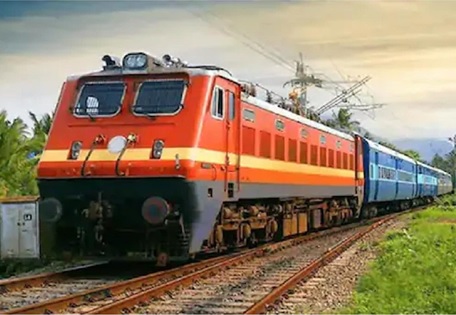|
Prelims: Indian Polity and Governance
Mains: General Studies Paper- 2: Governance, Constitution, Governance, Social Justice and International Relations
|
Reference
The Railways (Amendment) Bill, 2024 has been passed in the Lok Sabha.

Development of Railway Board in India
- The construction of India's railway network started before independence as a branch of the Public Works Department. With the expansion of this network, the Indian Railways Act, 1890 was implemented for the proper operation of various railway units.
- Later, the railway organization was separated from the Public Works Department and the Indian Railway Board Act, 1905 was enacted to provide some powers or functions to the Railway Board under the Indian Railways Act, 1890.
- Although the 1890 Act was repealed after the enactment of the Railway Act in 1989, the Railway Board Act, 1905 continued to exist and the appointment of the Chairman and Members of the Board continued to be made under this Act.
Key provisions of the Railway (Amendment) Bill
- The Bill aims to repeal the Indian Railway Board Act, 1905 and simplify the law by integrating its provisions into the Railway Act, 1989. This amendment will reduce the need to refer to two laws.
- The Bill amends Section 2 of the Railway Act, 1989 and provides for the addition of a new Chapter 1A relating to the Railway Board. It provides for granting certain powers to the Railway Board as may be determined by the Central Government.
- The provisions added in the amended Bill empower the Central Government to determine the composition of the Railway Board, the number of members, their service conditions, their qualifications and experience, etc.
- Accordingly, the Central Government may delegate to the Railway Board all or any of the powers and functions of the Central Government in relation to all or any of the Railways under this Act.
- Also, the Chairman and Members of the Board appointed under the Act of 1905 shall also be deemed to have been appointed under this Act. The Railway Board already exists and this Bill does not propose the formation of any new board or body.
Benefits of the Railway (Amendment) Bill
- This Bill includes provisions for improving operational efficiency and decentralisation of powers which will give more autonomy to the Railway Zones.
- This Bill also serves the purpose of improving the functioning of the Railway Board which will result in efficient development of the railway network.
Criticisms related to the Bill
- According to experts, this Bill has failed to address major issues related to Railways such as safety, vacancy, decentralisation of power at the regional and divisional levels.
- Some MPs have also raised concerns that the law will affect the independent functioning of the Railway Board by vesting various powers related to the Board in the Centre.
- It questions the challenges faced by the Indian Railways related to operational delays, accidents and safety initiatives, bureaucratic inefficiency, slow technological progress and the complexity of the PPA model and investment and the devolution of powers to the zones.
Related suggestions
- The Railway Board should be made an independent body with the power to take decisions and should be freed from government control.
- The Railway Board should provide adequate representation to Scheduled Castes, Tribes, Other Backward Classes and Women.
|
Did you know?

Before the establishment of the Railway Board in the year 1905, a committee was formed by Sir Thomas Robertson, after which the Board was established.
|


